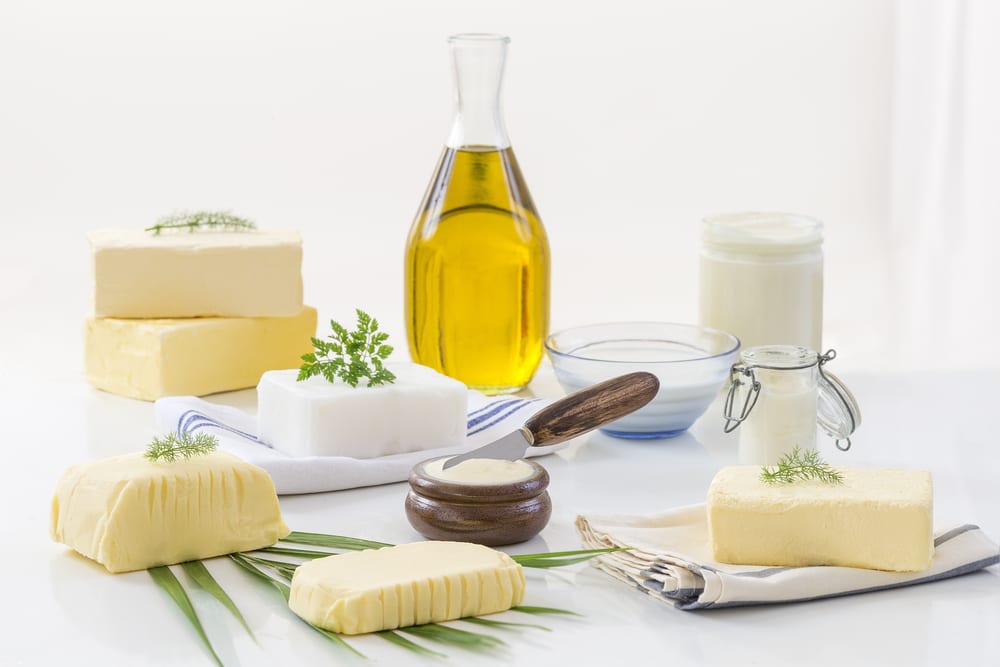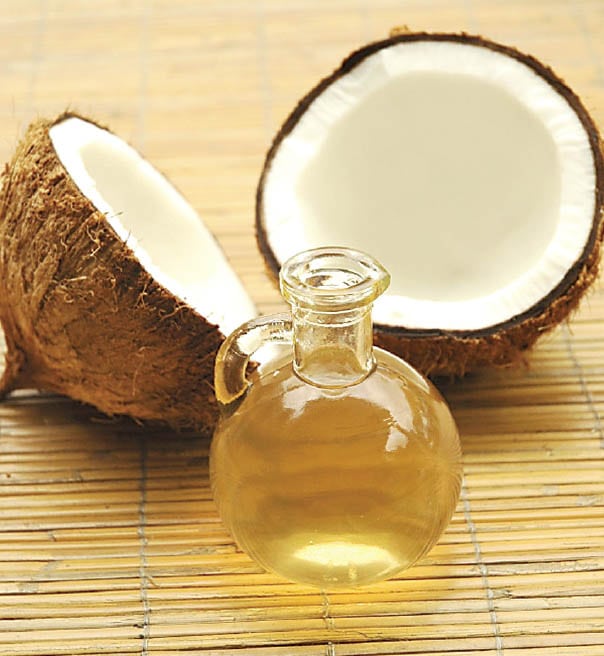Dietary Saturated Fat Kills! Or does it? The Debate Rages On…..
A recent editorial publication in BMJ has once again stirred the raucous debate about dietary saturated fat. One subject with two completely opposing viewpoints, each one filled with ardent supporters who know in their hearts (pun intended) they are correct.
So……does dietary saturated fat directly cause heart disease, strokes and death? Or does it not?
Wait a second. This is science we’re talking about. Shouldn’t it be clear who is right? Shouldn’t the evidence prove one group right and the other wrong?
Nope.
Nutritional science is messy and rarely conclusive. That’s why we got into this mess in the first place.
Hooray for Debate
Before we get into the details, let’s all celebrate the debate itself. We should all be grateful that we can take part of an open and emotional debate among intelligent, successful and reputable individuals. Recent history has too many examples of some individuals trying to shut down debates in favor of declaring the “truth.” We all should know by now that isn’t going to fly.
Instead, we should celebrate every chance to debate the science and its impact on our lives. After all, we can still have free speech even if we can’t have free healthcare.
Bad Data
Here is the problem with nutritional science. It is really bad science.
Remember your science fair project as a kid? You were supposed to design an experiment that tested a hypothesis, controlled for one variable, and proved if that hypothesis was valid or not.
Nutritional science doesn’t work that way. Instead, most nutritional studies are observational studies. We observe how people live their lives, collect as much data as we can, and follow them to see who has heart attacks, who has diabetes, who lives and dies, etc. We can then see what habits each person had and try to draw statistical associations.
The problem is that this cannot prove anything. It can only suggest an association. When compared to your middle school science fair experiment, you can see the stark differences.
The observational study does not control any variables (they try to control for certain variables, but that is an impossible task especially since we can’t know all the variables for which we need to control), does not test a single hypothesis, and does not prove anything.
Why Does This Matter?
Here’s the problem. There are lots of studies that show an association between saturated fat intake (mostly animal products) and an increased risk of heart disease, strokes and death.
But here is the kicker. There are also lots of studies that show there is no association between saturated fat intake (mostly animal products) and an increased risk of heart disease, strokes and death.
Huh? How can that be?
There are many reasons why but here are the two big ones. 1- People are all different, and 2- Food is all different
People are Strange, I mean Unique
In the BMJ article, the authors propose that inflammation, not saturated fat, is the main cause of heart disease. There is definite sound evidence to support inflammation as a contributing causative factor in heart disease.
However, we need to acknowledge that inflammation is different in everyone. We are all unique. Our internal environments, from our degree of inflammation to our gut microbiome, are all different.
Therefore, how we respond to our external environment (i.e. the food we eat) is going to vary from person to person.
LDL cholesterol is a prime example. LDL is not inherently “evil.” Why would our bodies evolve to produce a substance whose job it is to kill us?
LDL is a necessary component in our cells, our brains and for making our hormones. We cannot live without it. Our internal environment, however, can alter LDL and turn it into an oxidized and inflamed structure that is more likely to cause heart disease. That may not be an inherent property of LDL, but rather, something our body’s environment does to LDL.
The same can be said of eating saturated fat. It is certainly plausible that introducing large quantities of saturated fat into an oxidized and inflamed environment can cause harm. But what if the individual exercises regularly, eats a veggie-first/real foods diet, practices mindfulness regularly, gets regular restorative sleep, and therefore has very low levels of inflammation and oxidation? Chances are, the same amount of saturated fat in this individual is unlikely to cause damage (that’s my hypothesis, I haven’t don’t my science fair project on this yet).
Observational studies cannot tell the difference between these two types of people with different degrees of inflammation and oxidation. Instead, the trials try to reach a general conclusion that then is applied to everyone.
Does that sound like good science to you? I’d give it a C- in the middle school science fair (and that is being generous with extra points for their passion). Should we be making decisions about our health based on C- science?
We Don’t Eat Saturated Fat, We Eat Food!
Picture a big greasy burger on a huge bun, soaked in ketchup, with a side of fries and a coke. Observational studies call that a saturated fat eater.
Now picture a spinach and kale salad with beets, strawberries, walnuts, carrots and tomatoes topped with 4 ounces of grass fed steak. No fries. No coke. Observational studies also call this person a saturated fat eater.
I’ll say it once again. We don’t eat saturated fat. We eat food! It is crazy to think we can isolate one specific macronutrient and know all that it does. For starters, there multiple different types of saturated fat of highly variable quality with variable effects on our bodies.
Second, what we don’t eat (i.e. avoiding saturated fat) is just as important as what we do eat (instead, eating refined, processed, simple carbohydrates and sugar vs. veggies, fruit, nuts etc.).
In the example above, the first person had a huge bun, fries and a coke. There wasn’t a veggie to be seen. Tough to pick just one villain in that so-called meal.
Don’t Throw It All Away
Don’t get me wrong. I am not about to suggest that we throw out all nutritional research. We still need it to guide future research and help us generate hypothesis.
I will suggest, however, that we need to be very careful about interpreting the research. Anyone who claims observational trials definitively prove anything must be seriously questioned.
And when they claim a “vast collection” of evidence, or an “overwhelmingly consistent conclusion” from the evidence, keep in mind that a vast collection of dog poop is still just a bunch a dog poop.
I respect and value ardent supporters on both side of the saturated fat aisle. But I also know that neither has the strength of evidence that their conviction conveys.
What Do We Do???
Be wary of anyone who claims they have the “answer” and the “conclusive” evidence. Try not to get caught up in all the debate if you don’t want. You can keep it simple and keep it healthy.
Eat real food. Mostly vegetables and some fruits with healthy fats such as extra virgin olive oil, avocados, nuts and seeds. Add smaller portions of high quality animal sources and smaller portions of minimally processed whole grains and legumes.
If you enjoy the debate, by all means participate. It’s good for science. But here is the one and only thing I can say with absolute certainty.
I can’t prove anything that I recommended in this article.
There has never been a randomized study to prove my personal nutritional consensus. No one has done their middle school science fair project to prove my hypothesis.
Sometimes, we need to take a leap and say, “this makes sense.” We need to integrate all the evidence, combine it with clinical experience, and come up with our best solution.
That is why experts can be so passionate and so resolute in their position, and yet the positions can be so variable.
And that is why we need to find reliable voices we can trust.
My voice? Keep it simple.
Eat real food. Mostly vegetables and some fruits with healthy fats such as extra virgin olive oil, avocados, nuts and seeds. Add smaller portions of high quality animal sources and smaller portions of minimally processed whole grains and legumes. Take away the stress, be mindful in your eating, and enjoy!
Action Item:
Identify a belief you hold to be true about nutrition. Something that is ingrained in your core that must be true. Saturated fat is a perfect example, but there are plenty others. Salt? Carbs? Juicing? Whatever you feel is undoubtedly healthy or unhealthy. Next, search online for the exact opposite position. Keep an open mind and explore what the opposing side says. This will hopefully help you understand the complexities and uncertain nature of nutritional science.
Then, get back to the basics and (say it with me now….) eat real food. Mostly vegetables and some fruits with healthy fats. Add smaller portions of high quality animal sources and smaller portions of minimally processed whole grains and legumes. Take away the stress, be mindful in your eating, and enjoy!
Thanks for reading.
Bret Scher, MD FACC
Cardiologist, author, founder of Boundless Health
www.DrBretScher.com







